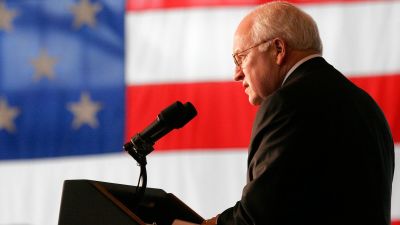Capital markets: Capital has heard the markets
When Finance Minister P Chidambaram began his reply to the Budget debate at 2.05 p.m. today, there were two questions that everyone—exc...

When Finance Minister P Chidambaram began his reply to the Budget debate at 2.05 p.m. today, there were two questions that everyone—except the Opposition which walked out—desperately wanted answered. Would he change his stand on raising FDI limits in certain sectors? And, would he tweak the Securities Transaction Tax (STT), which had caused such unease in the market?
In the end, Chidambaram ducked the first question and delayed answering the second till 3.25 p.m. when the markets were about to close shop. But his answer, when it finally came, was so emphatic that the markets shot up 82 points in the three-odd minutes that trading was possible.
The day traders, whose transactions comprise 75 to 80 per cent of the daily stock market turnover of Rs 7,000 crore, can breathe easy. They now have to pay a tax of just 0.015 per cent on their transactions, a tenth of the 0.15 per cent that Chidambaram had earlier proposed.
Debt-based Mutual Funds and all bonds were also let off the STT hook. The Finance Minister was silent on what these moves would spell for his revenue collections.
For a debate that had spilled over five days, even stretching past midnight yesterday, the benches were surprisingly empty when Chidambaram began his reply. Just 230 members, less than half the House, were present and many from the Left were missing. The Opposition then took offence to a reference to the drinking water scheme, which has now been named after Rajiv Gandhi instead of Deen Dayal Upadhyay, and walked out.
The Budget was passed in their absence as Chidambaram played with words to address the concerns of the Government’s backers in the Left without quite giving in.
The Finance Minister pointed to China’s great success story scripted around FDI. He also quoted a verse in Tamil and said: ‘‘I must speak sweetly, listen to them patiently and try to convince them, but in the end the government must decide to do what is best for the country.’’
He was far more emphatic on the transactions tax though some Leftists have accused him of listening more to business chambers than trade unions.
|
After the correction
|
||
|
• Day traders will now pay only 0.015 per cent |
||
Delivery-based trade will still be taxed at 0.15 per cent or 15 basis points. The burden, however, would be shared between the buyer and the seller.
For day traders, however, the transaction tax would be cut to 0.015 per cent. They would also get credit against tax on income from business profits which they were in any case paying. This would reduce tax avoidance. Even for derivative traders, the STT blow was softened.
They would now be required to pay 0.01 per cent STT with the added allowance of credit against income from business profits.
While giving the much-demanded relief to the bond market, which had suspended trading after Chidambaram’s Budget, the FM today allowed buying and selling of bonds including government bonds to be exempt from STT as are debt-based MFs.
Wherever STT is applied, Chidambaram’s statement clarified, long term (more than 12 months) capital gains would be zero, short term capital gains would be 10 per cent. Where STT is not applicable, long term capital gains would be 10 per cent and short term capital gains would be taxed at 20 per cent as is the current position.
Clarifying the point on tax on NRI deposits, the FM said that NRIs would be exempt from tax upto Rs 62,000 every year and also get benefits under section 80L of the Income Tax Act. He clarified that NRIs would also get credit for this tax under the Double Tax agreement in the home country.




- 01
- 02
- 03
- 04
- 05



























